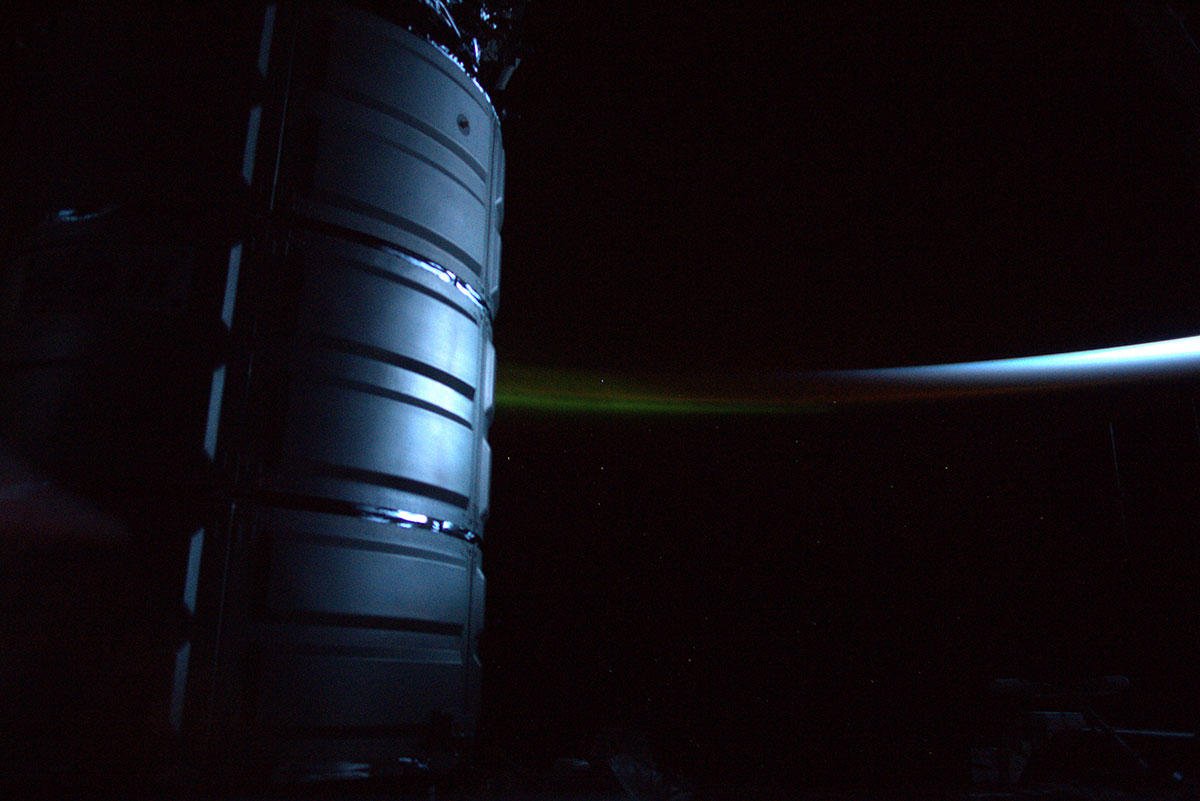[:ja]ルカ・パルミタノ宇宙飛行士がISSから撮影した南半球のオーロラと、ニュージーランド付近の日の出です。

オーロラは北極圏のイメージがありますが、地球の極に発する100km以上の上空で起こる放電現象なので、南極でも当然起こります。北米やスカンジナビアではオーロラのことを「北の光(northern lights)」と呼びますが、南極光を「南の光(southern lights)」、「南のオーロラ(Aurora Australis)」と呼びます。
参考文献: Luca Parmitano’s Tweet
地球俯瞰画像を見る: LiVEARTH
[Earthview Wonders] No.830: Aurora Australis🇳🇿
Astronaut Luca Parmitano captured from ISS beautiful Aurora Australis, or aurora in the southern hemisphere, and the sunrise over New Zealand.

Aurora is usually associated with Arctic region, but it is a discharging phenomenon that takes place at the polar region at over 100km above the ground. Auroras are called the “northern lights” in North America and Scandinavia, and “southern lights” or “Aurora Australis” in the southern hemisphere.
Reference: Luca Parmitano’s Tweet
See earthview photo gallery: LiVEARTH[:en][Earthview Wonders] No.830: Aurora Australis🇳🇿
Astronaut Luca Parmitano captured from ISS beautiful Aurora Australis, or aurora in the southern hemisphere, and the sunrise over New Zealand.

Aurora is usually associated with Arctic region, but it is a discharging phenomenon that takes place at the polar region at over 100km above the ground. Auroras are called the “northern lights” in North America and Scandinavia, and “southern lights” or “Aurora Australis” in the southern hemisphere.
Reference: Luca Parmitano’s Tweet
See earthview photo gallery: LiVEARTH[:]